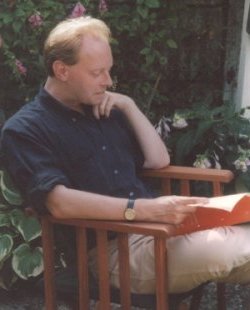Key words :
future energies,
nuclear
,agriculture
,,
small communities
,permaculture
,oïl
,civilization
,gas
Permaculture: = Permanent Oil-Dearth Culture
1 Feb, 2008 05:17 pm
Permaculture is both a strategy and a philosophy which may help us to re-adapt our societies in order to survive as a collective of small communities. The term "permaculture" is a portmanteau word that may be considered to arise from "permanent agriculture" or "permanent culture". The concept is based upon an efficient use of resources, of human labour and other kinds, and even if its full extent is not realised, the notion points us toward the alternative means to deal with depleting supplies of oil and other resources, which is to use less of them in the first place, rather than an endless but ultimately futile scrabble for more, in the pursuit of limitless growth. The word could also be ascribed as "permanent oil-dearth culture", in honour of the new age of limited energy, which is about to arrive on our doorsteps.
I am avoiding the term "peak oil", which has rather lost its impact. Ironically, now that it is spoken of widely in the media, the shock value it had for me certainly, has become blunted. I prefer then the more explicit phrase, "Oil Dearth Era", which offers clearly the premise that a shortage (dearth) of cheap oil is inevitable on passing the maximum output of oil production (peak oil), and that the event will not be a one-off "flash-in-the-pan" but an "era" of considerable length, probably permanent. We could adapt the expected conditions into the phrase, " permanent oil-dearth culture" which also accords to the descriptor, "permaculture".
The principles of permaculture might be identified as follows:
(1) Work with nature, not against it: use it as a teacher.
(2) Everything in nature "gardens" - for example, deer in a forest cultivate edible shoots by grazing/pruning them back.
(3) Minimum effort for maximum output - perfected, apparently, by a "do-nothing" farmer in Japan.
(4) The problem is the solution - e.g. thistles on grazing land which livestock don't eat, aid the fertility and condition of the soil.
(5) There's no theoretical limit to yield - only the imagination of the designer.
(6) Multiple elements and multiple functions - something as simple as a greenhouse is useful not just for propagating plants: it extends the growing season, collects rain from the roof, collects sunlight etc.
Indeed, the latter principle might be adapted to all buildings, which become and integrated part of the enterprise, feeding back water and energy to promote growth and husbandry. Point (4) reminds me of the "Dymaxion" principle espoused by Buckminster Fuller, which seems to accord with a state of permaculture.
Permaculture can be considered in terms of "zone sectors", which can be identified approximately, according to the relationship between human energy expended and the land itself:
(1) Zone 0 is your house.
(2) Zone I is your garden or immediate external space.
(3) Zone II is orchards or "allotments" as we call them over here.
(4) Zone III is farmland.
(5) Zone IV is rough grazing and woodland.
(6) Zone V is wilderness.
Both permaculture and the dymaxion principles can be thought of as a kind of "intelligent design", which makes the greatest use of human energy, while minimising serfdom and drudgery, as we associate with peasant or feudal labour.
It is debatable how much of our total current energy we will be left with as oil prices rocket sky-high, and there are actual shortages of fuel, which amounts to about one third of all the primary energy used in the U.K. Even if much of overall energy could be maintained e.g. by nuclear power, coal, remaining gas and any other means, a way to substitute for transportation fuel has not been clearly identified, beyond pie-in-the-sky shouts of "hydrogen", "solar" and so on, with no mention or consideration of what would be needed to fashion an infrastructure of production, supply and end-use, of sufficient and realistic dimension to do the particular job. I see no clear solution ready to be installed within 10 years, say, by when the Oil Dearth Era will be well and truly with us, and suddenly, relatively immobile populations will amount, who will need to survive by obtaining their necessities within quite near localities. Now, this could be called permaculture, couldn't it?
Related Reading.
[1] New Internationalist, July 2007.
[2] http://en.wikipedia.org/wiki/Permaculture.
[3] http://www.permaculture.org.uk/
Key words :
future energies,
nuclear
,agriculture
,,
small communities
,permaculture
,oïl
,civilization
,gas
-
12/12/12
“Peak Oil” is Nonsense… Because There’s Enough Gas to Last 250 Years.
-
05/09/12
Threat of Population Surge to "10 Billion" Espoused in London Theatre.
-
05/09/12
Current Commentary: Energy from Nuclear Fusion – Realities, Prospects and Fantasies?
-
04/05/12
The Oil Industry's Deceitful Promise of American Energy Independence
-
14/02/12
Shaky Foundations for Offshore Wind Farms







 Read more
Read more